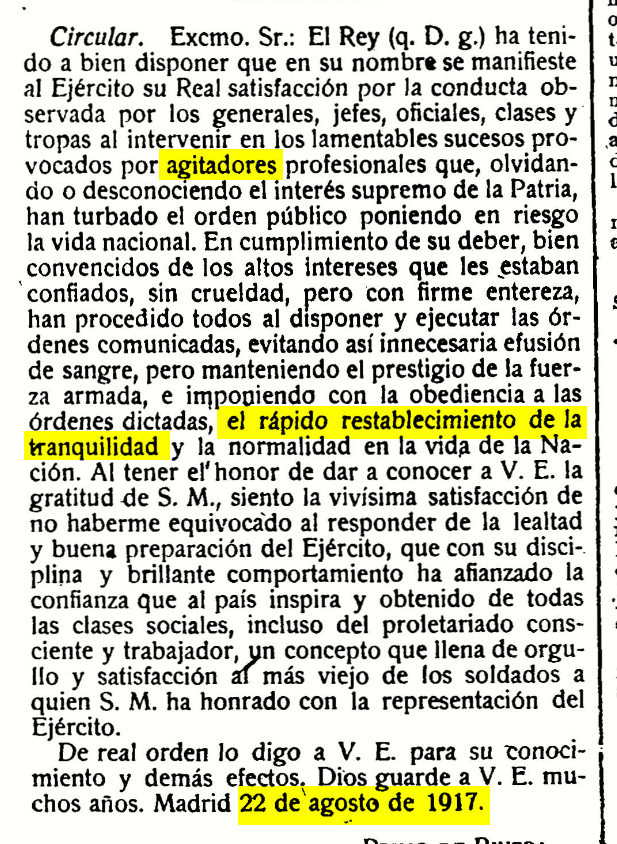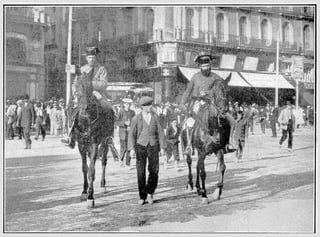For the year 1917 in my great-grandfathers Civil Guard records there are two entries.
Here is the second note (split over two pages):
This is the transcription so far:
Por R. O. de 22 de Agosto año marginal “D. O. nº 187” se dan las gracias a este indº (individuo) por la conducto observada en los servicios provocados por los agitadores del orden, imponiendo el rápido restablecimiento de la tranquilidad publica en el puesto de Badolatosa finió el año.
El Comandante Mayor
I know that at-least two words are not correct but there may be more. And I believe I have found the relevant Diario Oficial bulletin but I am not sure which page has the related information.
Bulletin 187
I think the relevant article is actually on page 1 as I see similar words:
I have not tried to translate that article yet to learn about it.
Update
I replaced two words based on the bulletin content. I think they are correct and don't know if the transcribed text has more issues?
Related Questions
Transcribing Spanish Civil Guard notes for 1917 (note 1 of 2)




